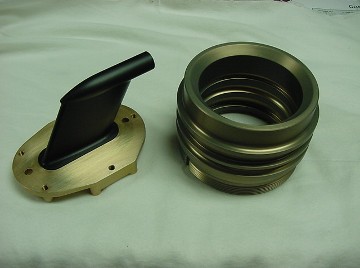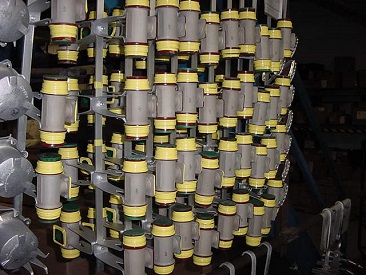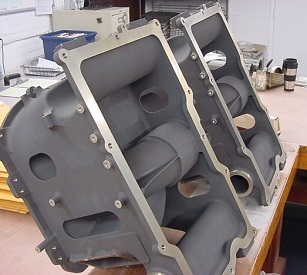Benefits of OurPoly-Lube Process
|
|
The Poly-Lube surface is file-hard (varies with alloy).
Typically, coating hardness is determined by a point loading indention test; however, this test is not an accurate measurement of Poly-Lube hardness, as the coating tends to crush under concentrated point loading due to the softer under-metal (aluminum). POLY-METAL FINISHING INC. uses a more viable and frequently used test, the Vickers Micro Hardness Test, to evaluate hardness. This test can be converted into a Rockwell equivalency reading.
|

|
Corrosion-Resistant
Our test results on 6061 aluminum indicate that surfaces treated with PolyLube withstood corrosion in a 5% salt spray test for nearly 1,000 hours, as opposed to less than 400 hours for hard coat anodizing. This is a drastic improvement of 120%!
Results vary depending on the alloy of the material and the surface finish. For the most accurate results, submit a sample of the alloy and a description of the finish you intend to use. After processing, we'll return the alloy to you to evaluate.
|

|
Dielectically Stronger than Hard Coat
An independent laboratory study revealed that PolyLube coated samples break down at 2,000 volts. Hard anodize samples break down at 1,100 volts.
Dielectric strength varies according to alloy and surface finish, especially in the case of cast alloys. Through vigorous research, we've found that the combination of PolyLube and the 5,000 series alloy (particularly 5052), offers the best dielectric qualities.
A Low Friction Surface
PolyLube provides a significantly lower coefficient of friction than hard anodizing. There is a direct correlation between the coefficient of friction and surface finish-the better the surface finish before PolyLube, the lower the coefficient of friction after PolyLube.
|
 |
Contact PMF in Springfield, Massachusetts, to begin the Poly-Metal Finishing experience.